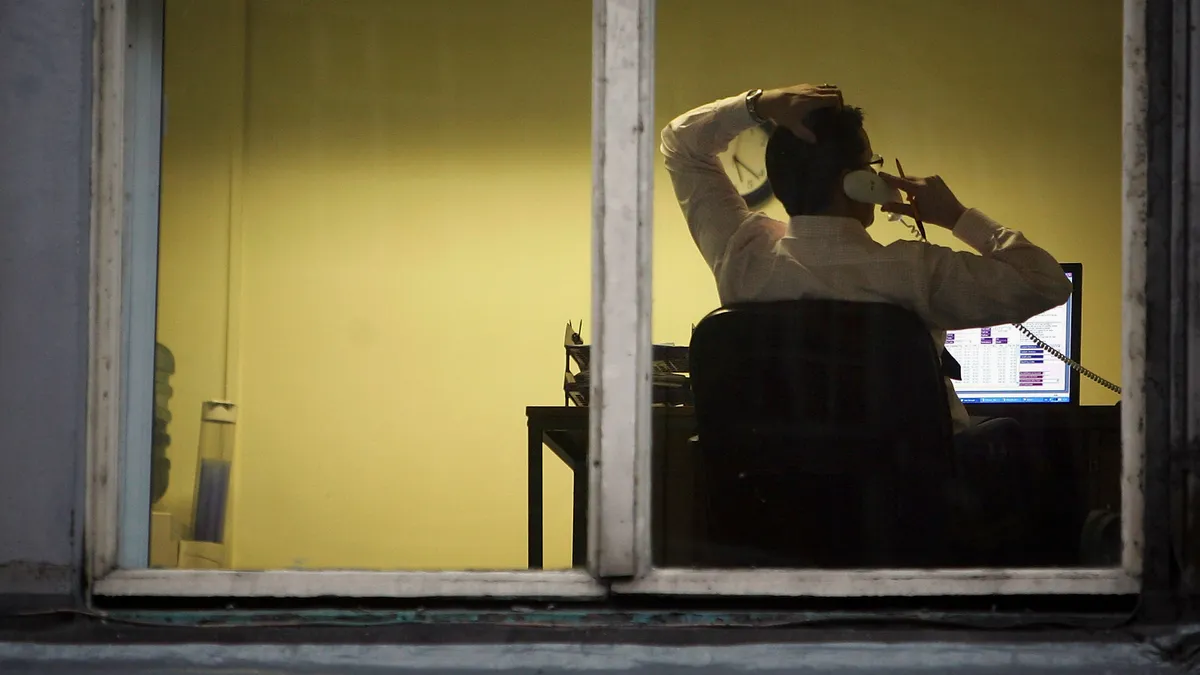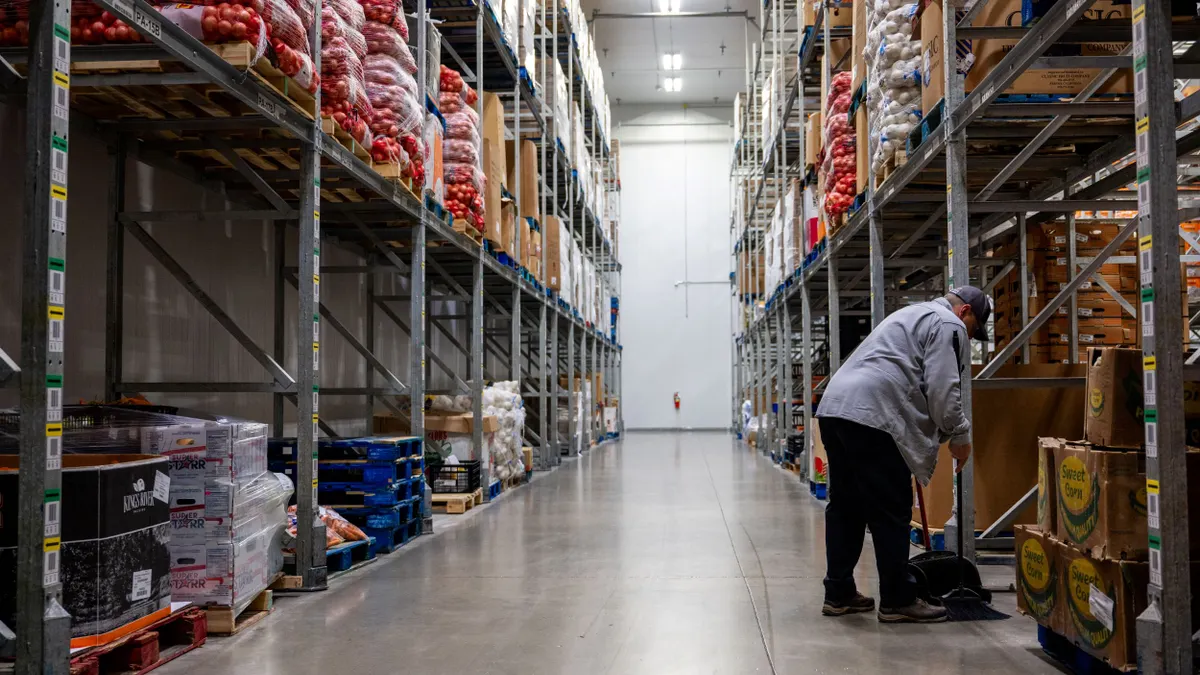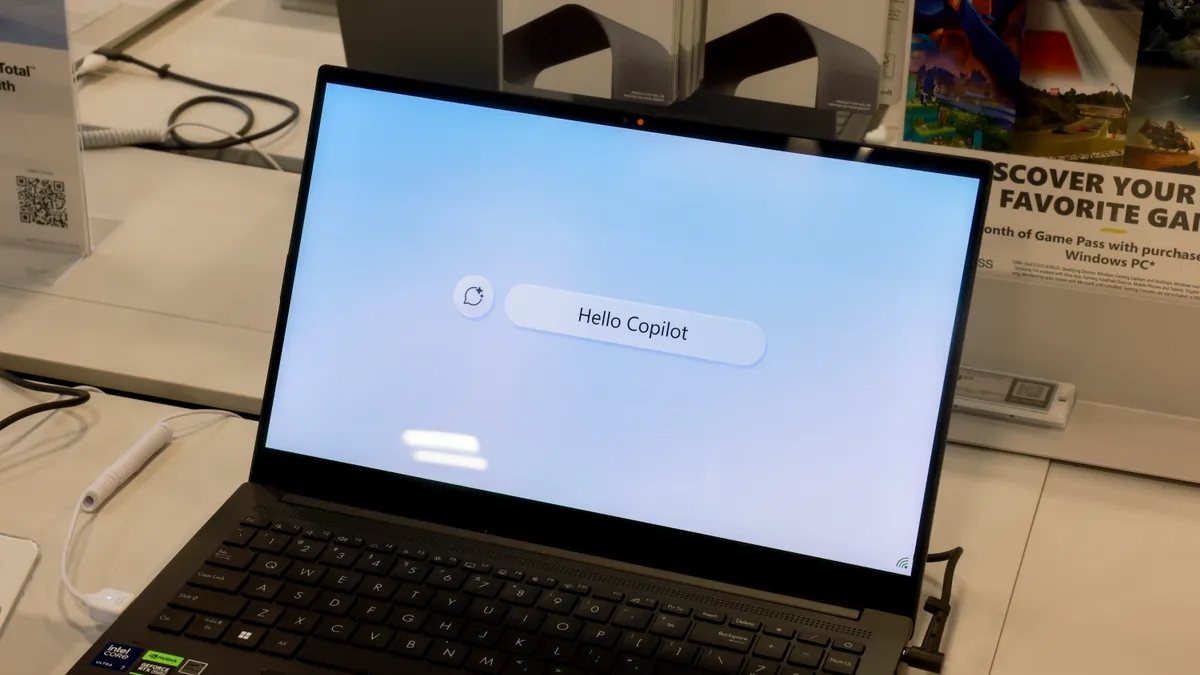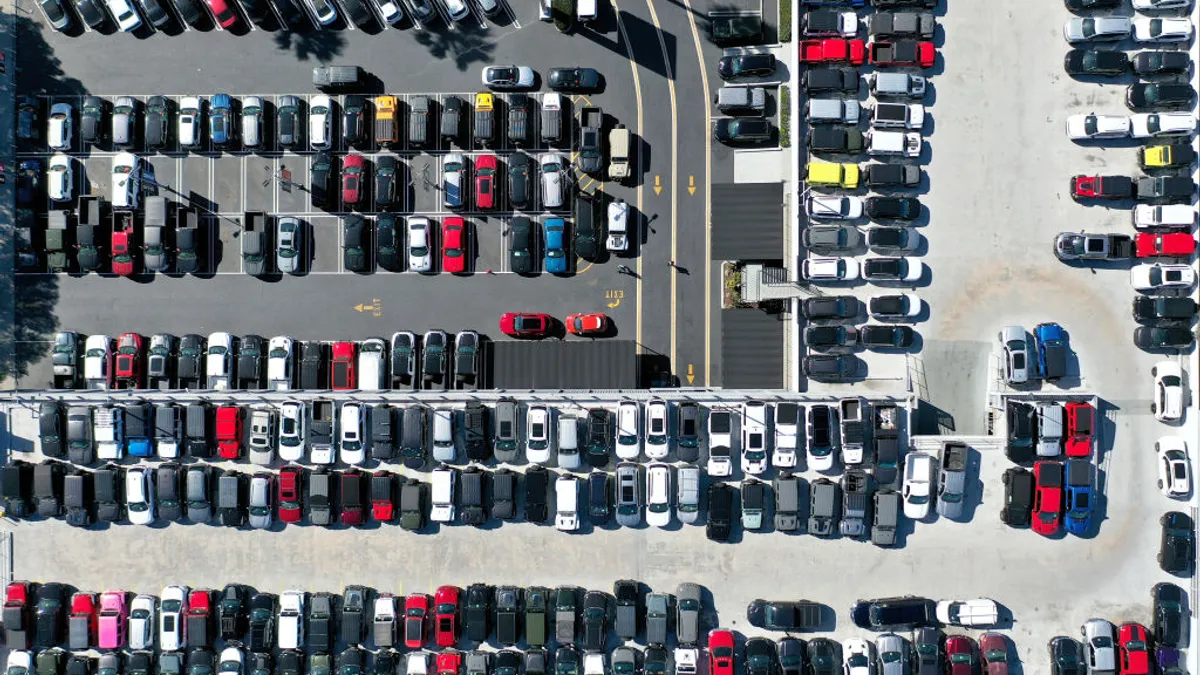Artificial intelligence is changing the way we recruit across almost all categories of hires. We know that the technology can improve success in acquiring candidates, but can it go further, predicting candidate potential?
Driven by data
AI is fueled by data: The more information you give it, the more it can tell you. But, as with all technology, it's only as smart as the data it has. So the better the information you give it, the better the results.
AI looks for patterns and makes assumptions based on its findings. Where a person's instinct, for example, tells them a candidate's body language shows their confidence and self-assurance, the majority of AI, at least today, can't make that that judgment.
"The interesting thing is that AI thinks differently from humans," Ben Reuveni, CEO and co-founder of Gloat told HR Dive via email, "so it can find patterns humans won't."
In its work, Gloat found army paramedics tend to go on to leading positions in tech, business or academia. "Unknowingly," he said, "the AI recognized properties of excellence and commitment in paramedics, although there is no obvious connection between first-aid skills and any the skills in the above fields."
And because people can reach conclusions the tech can't, AI and HR can complement each other. The best results come when algorithms are guided, Reuveni said. The algorithm can find recurring patterns not obvious to a human, but not all patterns are relevant. "If you came from Switzerland, it doesn't necessarily mean you will be fit for the cheese or clock industries," he explained. This is where human wisdom and intuition come into play.
What can it predict?
Once AI has the data it needs, there are a wealth of possibilities for HR. "AI selection tools can certainly find correlations between applicant characteristics and job performance, tenure, and other measures of workplace success," according Mark Girouard, labor and employment attorney at Nilan Johnson Lewis.
But those correlations don't necessarily mean a characteristic is important to a job. He cites an instance where data found high school lacrosse is highly correlated with positive performance ratings — not something most employers would consider a valid reason to hire.
The conclusions AI can extrapolate depend on the data it receives, but Girouard told HR Dive in an email that with enough data, AI tools can find statistical correlations between applicant characteristics and all kinds of things that can happen in the workplace. "For example," he said, "I've seen these tools used to 'predict' incidents of theft or other workplace misconduct, on-the-job injuries, and tardiness or absenteeism."
But data collection needs to be standardized, according to Madhu Narasa, CEO of Glider.ai. To accomplish this, he suggested standardizing the process that every candidate goes through, then gathering "collective intelligence about what factors predict high performance and longevity in the organization."
That way, AI can "see" these attributes and predict performance in a systematic way across all candidates. "Most organizations today don't follow such a data-driven process," he told HR Dive via email, "so leveraging AI in this [way] would not only help find candidates who fit a company better but would also improve the candidate experience."
To start, Narasa suggests employers begin with a "training" set and let the algorithms "learn" as they see more and more data. "The learning for process," he said, "involves calibrating the algorithms based on the features that were present in a candidate that excelled on the job."
Flipping the narrative
Humans have good intuition, and while computers may eventually catch up, they're not there yet, Matt Hendrickson, CEO of Ascendify told HR Dive.
That's why his team approaches the candidate potential question from a different direction, applying AI to augment decision-making. They're working to track which interviewers make good candidate prediction. Working backwards, they can discover which hiring rep can hone in successfully on technical capabilities, and which can identify potential leaders. Those data points can then be used to recommend interviewers for each position. It can even recommend training for recruiters in areas where they haven't excelled, he said.
It's a new way to use AI to enhance the decision-making process. "For many companies," Hendrickson said, "the best strategy is to augment decision making around defining what is successful in a particular role."
Mind the data gaps
AI can find patterns that are statistically valid, but totally irrelevant, the experts noted. And that's why HR needs to ask the right questions about any new tech.
"Left unchecked," Reuveni said, "some of those patterns can lead to unintended discrimination." For Gloat, that means working to ensure that AI only considers relevant properties in its conclusions. Skills, education and professional experience are included, but not gender, race or age. This has required a little creative thinking: "If your hobby outside of work is painting, our AI will mark it as skill," he said, "however golfing and skiing are not exactly skills and can indicate socioeconomic status: our AI won't take them under consideration in any way."
Girouard offered a similar warning: "AI tools can replicate, and magnify, existing disparities in a workplace." If the data an employer inputs, whether consciously or not, shows men are promoted more quickly than women, the AI tool may "learn" that men have more potential for growth and recommend hiring them more often. Employers will need to be vigilant not only to assure they're inputting data generically, but check rigorously to make sure the algorithm isn't making biased assumptions.
So the big question remains: Can AI predict success and even longevity? It's certainly getting there, but employers have to be mindful of these pitfalls. What's more, the human aspect of hiring doesn't look to be under threat of replacement any time soon.




















